Oh hey, BPA
Hi from the Pilot’s office 🙂
He had some paperwork to do tonight, so I walked around the gym track with the Kindle for a while and am hanging out until he’s done working.
Today was a pretty good day- far more productive than yesterday!- filled with errands and many of the things that have been neglected in favor of holiday prep and celebration.
Some eats:
yogurt, almond butter
(I put a couple of blobs of almond butter into the yogurt)
and chocolate,
Thai coconut Amy’s soup:
(It looks like curry-flavored milk but there were vegetables that sank to the bottom. I added some red curry paste to it and while it was ok, not my fave. I didn’t realize it had tofu in it until I was about halfway through and the tofu bites were like chewy erasers… mmm, tasty)
and since I didn’t feel like making real rice to go with it, I had some brown rice cereal.
Same thing, right?
While I was eating the soup, it definitely made me wonder about BPA, since we buy a fair amount of canned goods. BPA stands for Bisphenol-A, which can be found in plastic products and lining of cans. It was banned from being used in baby bottles in Canada in 2010, and overexposure is linked to various negative health effects. Apparently it mimics hormone compounds in the body and has been linked to increases in various types of cancers and health concerns. (There is a ton of info online about BPA if you’re interested in learning more)
Canned goods very convenient, especially when it comes to tomatoes and soups (making homemade beans is a piece of cake) but with the BPA content, it makes me wonder if I can have the convenience minus the chemicals. I’ve transitioned away from bottled water, especially since we have an awesome water filtration system, but still get BPA through occasional canned goods. Jars are a great option, but many soup and tomato companies have yet to transition to them.
Whole Foods has BPA-free can options, and a few brands (Muir Glen is one them) have stopped using cans lined with BPA.
Do you pay attention to BPA in the food containers you use? How do you avoid BPA in canned soups and tomatoes, or do you just roll with homemade?
Like everything else, I don’t feel like there should be an all-or-nothing attitude about it, but would love to know what your BPA philosophy is.
Dinner date with the Pilot- see ya in the morning!
xoxo
Gina

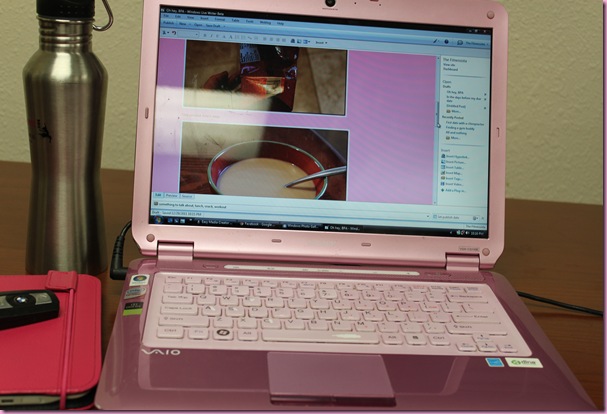
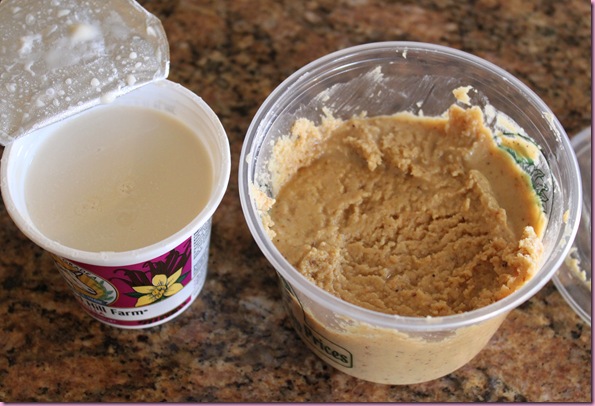
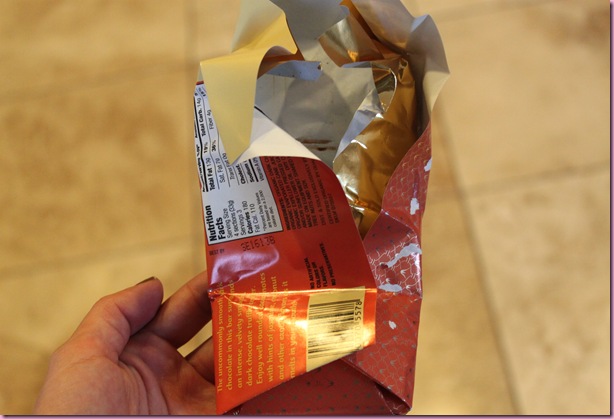
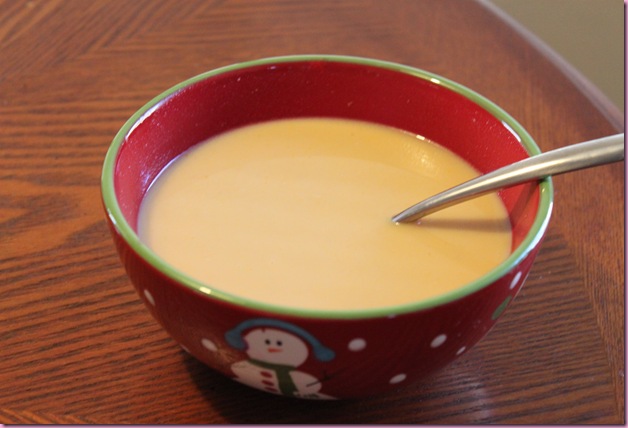
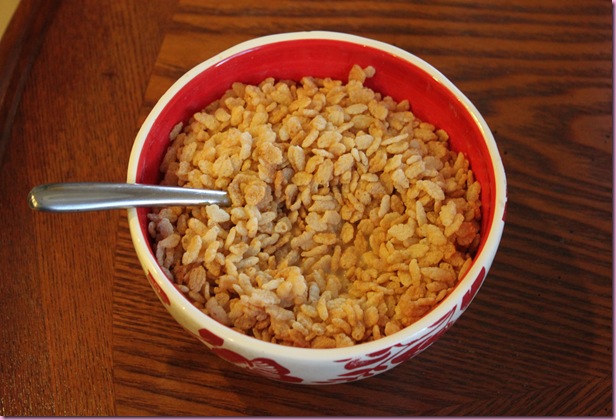
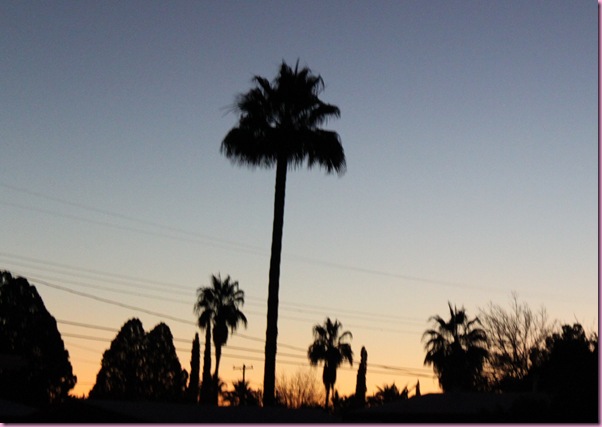



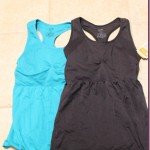


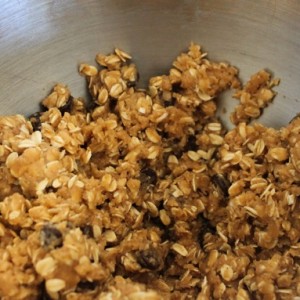








Ooooh dinna date! Better celebrate, since that baby is going to pop out like, any second. Have fuuun!
p.s. BPA freaks me out. I only buy BPA-free because I’m pretty sure I’m paranoid.
Check this out: http://www.pacificfoods.com/our-foods/creamy-soups
The roasted red pepper tomato soup is the most delicious pre-made soup I have EVER had. I add blackbeans and a dollop of greek yogurt for protein!
I’m the same as you. No bottled water, but I don’t always avoid it in cans and things like that. I am trying to avoid it when possible though. I’m looking for a glass BPA-free container that I can carry my green smoothies in. If anyone has any recommendations, I’d love to hear them!
I just discovered LifeFactory bottles. BPA free with a silicone sleeve. I actually bought the baby bottle with a flat screw on lid as it was 9 0z. They now have a flip lid on the 22 oz bottles. All are made in the USA and Europe! I found mine at an upscale Whole Foods Market. http://www.lifefactory.com/
I just discovered that website last night too and was wondering what they were like. Thanks for letting me know! Definitely going to order one. 🙂
Because of you I went up last night and ordered a 16 oz as they had free shipping. I really wanted the new top but the 22 oz bottle is just too much for me. Hope you like them. I sure do. They even had purple!!
i’ve seen those at our whole foods- will definitely have to pick one up 🙂
Definitely something I think about too! But I have been waaaay to lazy in actually doing anything about it. Sometimes its hard to resist the 79 cent canned tomatoes over the BPA free organic ones!
I went thru a massive anti BPA phase in about 2006. I was pregnant and hyper vigilant about everything and had nothing but time on my hands to research things..I replaced much of my plastic with glass or stainless and any plastic I had, became BPA-free.
Time passed, motherhood happened, rules bend, life happens and it’s not always possible to be BPA free and I am okay with that too. Balancing act. Juggling the balls and doing the best we can at the time without going to extremes is my motto 🙂
when i was getting my public health degree, BPA was like THE BIG THING TO WORRY ABOUT.
i try and avoid it as much as i can.
i know that it’s especially prone to leeching out in highly acidic foods – like tomatoes, of course.
i also just learned that it’s in the plastic coffee lids! so if you dont bring your own thermos, dont sip from the lid!
We don’t buy a lot of canned goods, so we don’t worry too much about BPA in the cans when we do buy canned goods. I don’t drink a lot of bottled water, and most of our drink containers are BPA-free.
There are always ways we can improve our eating habits and knowledge about the foods we eat. I am trying to slowly switch more to glass too. It’s always good to be more aware and conscious of things like BPA.
My organic chemistry professor said that BPA is really only released from plastic when it is heated at high temperatures, but I stick to using my BPA free camelback just to be sure. As for cans I can’t say I can afford to give those up anytime soon as I use them for my beans, soups, and tomatoes (would love to hear your advice on easy bean making!!) one day I would love to learn how to can so I can my own tomatoes and soups!
I believe that canned foods are heated to high temperatures in order to can them. I think that in conjunction with the acid content in the food causes it to leech into the food.
I totally stay away from canned foods. To much gross chemicals and salt. You have to pick your chemical battles, so to speak because they are everywhere, but I feel like staying away from cans and plastics is one that can be done.
I must be an idiot because i had no idea that there was BPA in cans. I knew about plastic bottles and containers, so I make sure to only buy things that claim to be BPA free.
Eden Organics canned foods are all BPA free too! There are plenty of options out there to avoid BPA, you just have to look. I think the most frustrating thing for me is that my family thinks I’m just ridiculous. Sigh.
I worked for a few years in public health specifically with BPA. My research and work definitely convinced me to cut it out of my families lives. It just resurfaced recently when the dentist recommended the sealants containing BPA for my son’s newly emerged molars. I delved back into the journals and latest research and again concluded that it is far too risky for a child’s developing body. There are alternatives, Japan has completely removed BPA from all food products. You can substitute in the US by purchasing foods in tetra paks instead of cans.
Moderation for me. I try not to buy anything canned, not only for the BPA but also for the sodium & preservatives. Sometimes, it’s hard to avoid–especially when you want to make chili in under an hour. 🙂
As far as bottled water, I use a Brita pitcher. Saves money & saves the planet. Bonus.
We are a mostly plastic free household because many plastics have latex in them and I have a severe latex allergy. Anything we do have that is plastic is BPA and latex free. For canned foods, we rarely buy them but when we do it’s a BPA free brand. Most of the time I just buy things in glass bottles, make them myself or have my husband do it.
Oh no, your post about BPA’s is freaking me out a little. I avoid plastic bottles, but I totally forgot about cans.
I live off of cans of TJ’s organic garbanzo beans and black beans. I add them to everything. Healthy and so convenient! Especially since I don’t eat a lot of meat.
Do all cans contain BPAs unless stated otherwise?
Thanks for the friendly reminder about BPAs.
I’ve heard that TJ’s beans cans are BPA-free!
http://www.treehugger.com/green-food/7-companies-you-can-trust-to-use-bpa-free-cans.html
Oh yay! Thanks, Lauren! 🙂
Eden Foods cans are BPA-free.
I do definitely consider BPA in my food purchases. I use only Muir Glen tomatoes or bottled varieties. Beans are still a little tricky. I do use dry beans from time to time, but I often need the convenience of canned, but BPA-free canned beans aren’t sold within an hour of where I live. Sort of takes the convenience out of it, eh?
I don’t altogether live without BPA, but I think over time I’ll be phasing it out as much as possible. Since I have PCOS and am already at risk for various cancers because of my estrogen dominance, I think it’s especially important for me to start working on that.
Personally, though, when it comes to finding things BPA-free, we actually prefer to go totally plastic-free. I figure, right now we’re finding problems with the BPA in plastic. What about other chemicals? What nefarious things will we find in plastic 5 or 10 years from now? Now, I don’t think it’s realistic to go totally plastic free, especially overnight, but I’ve switched to glass for all my storage containers, and that’s my first step.
We try and pay attention to BPA and try to get what we can in Eden brands as they don’t make anything canned with BPA. We still get some in other cans, but I limit how much canned stuff we have, how often.
BPA may not have been outlawed in baby bottles here, but you’d be hard-pressed to find bottles that still have it. even things like baby’s bowls/plates and teethers are almost all universally bpa-free now.
I still buy tomatoes in BPA-lined cans. however, I recently switched to frozen for things other than tomatoes and black beans, like corn in particular. I agree with you that it’s best to avoid it but we don’t necessarily need to lose our minds over ensuring a BPA-free household.
I was actually thinking about the BPA content in cans the other day. In one of my lectures we learned about how the gov will never say how bad BPA is, and how much of it is actually dangerous because they subsidize a lot of the foods that are canned. I need to do a little bit of research on it, but it seemed like the issue is a lot bigger than the ‘recommendations’ make it seem. I mean if they can make baby food without BPA, why not take a few more precautions and take it outta all cans?
I stopped using anything BPA about a year ago, there is just too much bad for you stuff out there anyways might as well change what you have control over. If you do the research you can find the plastic storage containers without BPA in them. Rubbermaid makes some and they stack!! I have found the biggest difference in the water bottles that I use. Now if I happen to use a plastic one I can ‘taste’ the plastic, I have a metal Camelbak one that is just amazing. Thank you for the post!
I had no idea it was in cans too! We use BPA-free water bottles, but I really didn’t know about the cans. It’s not really in my budget to go strictly organic/jars/etc, but it’s something we are striving for. No one is perfect, but I think as long as we make progress, we are doing great 🙂
Thermal paper, like receipt tape, has high amounts of BPA too. Think about it, you shove them on your purse, they touch everything in your purse. Now everything is contaminated! Ah! Its almost too hard to avoid so I don’t worry about it. The blog Young House Love has a post about BPA. you’ll have to look in the archives b/c it was a while ago.
I rarely buy canned tomatoes anymore after reading this article: http://shine.yahoo.com/healthy-living/the-7-foods-experts-wont-eat-547963.html. Tomatoes are the worst culprit bc of their acidity levels apparently.
I love the boxed Pomi tomatoes and use them whenever possible. The only ingredient is: tomatoes! And no BPA either. Win 🙂
I know it’s not the best, but I honestly hardly think about BPA 😕 I do enjoy a can of soup frequently [throughout the cooler months] and should start focusing more on it- usually I’m more concerned with what is inside the container [the ingredients] than the container itself… I really should start paying more attention!
I agree with you in that an all or nothing approach isn’t practical. I find that it is really easy to cook dried beans at home in my crock pot, so I avoid BPA in canned beans without having to pay the extra few cents for the Muir Glen brand. But it is an expensive and tedious process to make canned tomatoes at home and there are just some things where fresh tomatoes will not due. This is particularly true with tomato paste. I’ll make exceptions for canned tomatoes and tomato paste, but I try to only have them occasionally. I am also noticing tomatoes being packaged in glass and tetra packs, so I try to by those when it is appropriate. The main way I avoid BPA is to not heat my food or pour hot leftovers in plastic containers, and I drink out of an unlined aluminum water bottle.
I started getting freaked about BPA in canned tomatoes – I use them all the time. Muir Glen recently stopped using BPA lined cans and will start labeling as such when all the old ones are completely off-shelf. Yesterday I stocked up on spaghetti sauce from glass jars and Pomi. I’m thinking of doing a real garden this year & trying to can my own tomatoes. I heard it’s a pain in September, but the payoff is great come January!
I do know that the Starbucks cold cups are BPA-free – I use them for smoothies all the time!
Gina – the only tomato brand that is BPA free is Mur-Glen. We only use them for canned tomatoes since it is both organic and BPA free. In terms of other things, I just try to get fresh soups from the deli and freeze them in smaller portions, making it just as convenient as canned. For beans, I try to use dry and soak them. Once we got in the habit of soaking beans instead of going to canned, it was like clockwork! I think they said for breastfeeding moms it can be important to stay away from the BPA if at all possible. The EPA still has not been able to decide on a level that is “dangerous” to humans – very similar to the long term effects of pesticides, so it’s always best to go free if you can! So glad you have had a happy healthy pregnancy!
i try to be mindful, but i’m not perfect. i still buy some canned food, but make an effort to stay away, especially when it comes to storing food or drinking water out of a bottle. wont give up canned pumpkin, even though i bought some in a carton from WF, it was so much more expensive 🙁
I’ve been thinking the same thing about BPA in cans. I’ve also read recently that BPA is also present in many plastic bags used for frozen fruits and veggies. It’s really hard to avoid it 100% (which is so frustrating!) but I’ll definitely be on the lookout for BPA free cans or avoid altogether.
Since living in Honduras for the past 2 years I haven’t had access to canned tomatoes and have used fresh (with great results) in any recipe that I previously would’ve used canned. I’ve also become a master at making soups and after making a wide variety of my own creations, I honestly would never eat canned soup again. Once you get the hang of making soup (which is sooo easy, just have to play with your ratios of sauteed veg (plus meat if applicable) liquid, and spices) you can make big batches and freeze convenient portions. I do find canned stock convenient but in the future I’ll just buy the boxed kind (or make my own which is always better!).
Can’t believe it’s almost time for you little one to come out!
I’ve started trying to avoid it. I buy Eden Organics beans when possible (their tomatoes still had BPA last I checked), and Pomi tomatoes – some of the older Muir Glen cans still have BPA, and the cans aren’t currently labeled :/ As for soup, I try to stick to frozen, dry packaged mixes, or the kind in the cardboard cartons. Its hard, because even glass jars have BPA in the liner for the top, and Ball canning jars that people use at home also have BPA in the lid liners (you can buy plastic ones that don’t, but you have to order them) – at least its not as likely to come into direct contact with the food. I don’t drink soda unless I happen to be at a party, so I’m not too worried about it from that.
I’m not sure how much it helps – I still eat out, and you can’t control how much BPA is in the food you order out. But I figure that if I avoid too much processed food at home, I’m doing myself a favor. Sadly, I’ve been lax during my pregnancy – for the first few months I didn’t feel like doing anything.
BPA was orginially made as a birth control pill, but it did all kinds of crazy things to the women, so it was banned. With that knowledge, I do what I can to avoid it–espeically with little ones and thinking about future pregnancies.
I try to avoid canned foods as much as possible, but when I do buy them, I always look for the BPA-free ones, like Eden Organic.
I don’t comment often, but I saw this online (shopping for a gift basket for a coworker who just had a baby girl), and thought of you. http://www.cornerstorkbabygifts.com/Big-Dreamzzz-Baby-Pilot.html
I think this is most definitely necessary.
i agree! i LOVE it
something even scarier is that in products with high acidity levels, like tomatoes, thhe BPA really leaches into it! I always buy Eden brand but don’t do a lot of canned stuff. I think Muir Glen is BPA-free? Any tomato products I go for teh glass jar when available…like the bio whatever [<–mommy brain I can't remember] version of tomato paste
Hi Gina,
I don’t often comment on your posts but I hear a lot about BPA from my husband so I asked him to write something about his thoughts on the subject. I’m sure he’ll be happy to respond to any additional questions!
“Your question about BPA is thoughtful and reasonable, especially noting that that “over-exposure” may cause health effects. Of course, the notion of over-exposure, applies to everything… alcohol, ibuprofen, even water.
The US FDA and the EU EFSA both agree that the level of BPA found in canned foods is not a health hazard.
For perspective, a naturally occurring substance known as genistein, found in soy products, occurs at about 50 parts-per-million (ppm) in soy-based infant formula. At the very highest levels, BPA in canned foods could be 0.5 ppm… so genestein is 100 times higher in infant formula. Genestein is a plant estrogen with endocrine activity about 10 times higher than BPA.
Taken together it means we are feeding infants something that is 1000 times more endocrine active than food from a BPA-epoxy coated can. People are not throwing out their Tofu to avoid genestein, and kids consuming soy formula seem to be doing just fine. Like genestein, BPA is rapidly metabolized and excreted.
In my view, food safety and nutrition totally trumps any BPA hype. As a board certified toxicologist for the past 22 years who has thought a lot about BPA, I simply don’t worry about it. I’d worry a whole lot more about bacterial contamination and corrosion that could occur if BPA wasn’t there.
Unfortunately, I doubt BPA paranoia is going away, no matter what the science tells us. Rest assured that companies who make can coatings are working very hard to find a BPA replacement that works. The market advantage is obvious. “
You haven’t posted yet today….IS THE BABY COMING?!
no, not yet! i had to go into work this morning for a friend. when the day comes, i’ll tweet and put a post up, i promise! 🙂 wouldn’t leave you guys hanging <3
I belong to an organic food club and order the Pomi tetrapak tomatoes by the case! =)
Have you ever read Origins by Annie Murphy Paul? It is about the nine months before birth shape the rest of our lives. It has a very interesting section on BPA and how it can affect the fetus, based on studies and research. It has opened my eyes to BPA, and Im not even pregnant!
no but i’m definitely intrigued! will have to check it out
Hi! I just noticed this post and thought I would give my two cents. I jumped on the BPA free bandwagon a few years ago, getting rid of all our plastic dishes, cups, tupperware, and water bottles. I have tried to be extremely cautious about packaging material and putting anything that might have BPA in the microwave or leaving it in a hot car. Then my husband brought up a good point that I’m sure most people don’t know. He is a project manager for a general contractor and told me that most water systems for houses and buildings constructed after the 40’s use PVC piping. It is the obvious cheaper option for builders but it’s certainly not BPA free. It seems no matter how diligent we are, there really isn’t a way to be rid of it completely since all of our water is soaking it in! Thought I would pass this along…